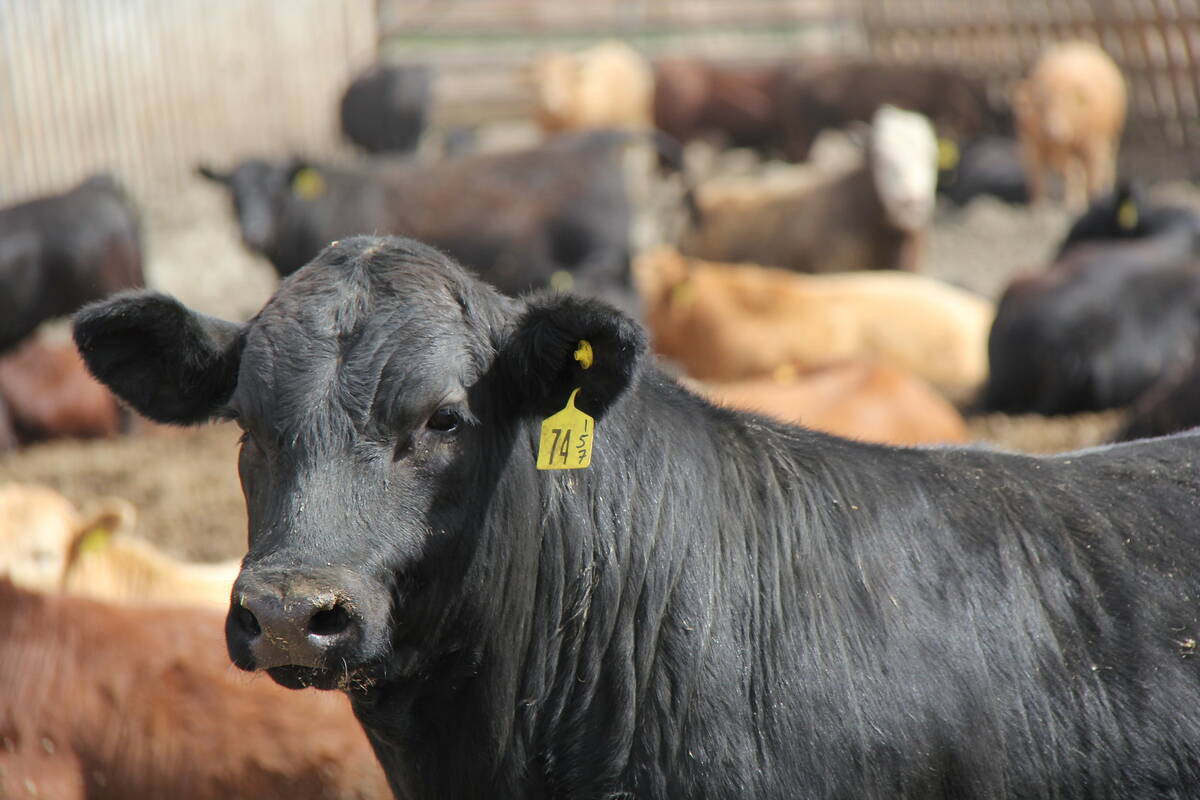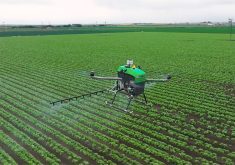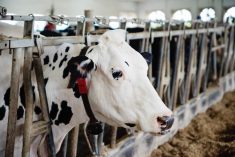The federal government’s latest budget puts up Canada’s agrifood sector as one of six “key areas” to benefit from a new national “Innovation and Skills Plan.”
Federal Finance Minister Bill Morneau on Wednesday unveiled a budget projecting $330.2 billion in expenses in 2017-18 against budgetary revenues of $304.7 billion, for a $28.5 billion deficit.
The budget described the Innovation and Skills Plan as “an ambitious effort to make Canada a world-leading centre for innovation,” targeting agrifood as well as advanced manufacturing, “clean” technology, digital industries, health/biosciences and “clean” resources, “with a focus on expanding growth and creating jobs.”
Read Also

Canadian Cattle Association launches traceability survey
The Canadian Cattle Association wants producers to share their thoughts regarding the proposed traceability regulations.
The government noted the federal Advisory Council on Economic Growth had recently “highlighted (the agrifood) sector’s potential for growth, citing Canada’s natural endowment of water and arable land, research strengths and accomplishments, and strong network of entrepreneurs.”
The Innovation and Skills Plan sets what the government described as “an ambitious target to grow Canada’s agrifood exports to at least $75 billion annually by 2025.”
Morneau, in his speech, said Canada is “positioned for success” in agrifood, noting that by 2050, “global demand for food is expected to rise significantly.”
That in turn “means more demand for Prairie canola, Atlantic crab and lobster, and B.C . berries. It also means more jobs in the fields of southwestern Ontario, and on the maple syrup farms of Quebec’s Eastern Townships. We will help farmers, producers, and processors build their businesses globally, and do so sustainably.”
The Canadian Federation of Agriculture, in a separate release Wednesday, noted the budget “doesn’t specify details on certain policy targets” such as how it will reach the $75 billion target, but the group is otherwise “pleased with the emphasis on the contributions of agriculture in helping to grow the economy.”
CFA president Ron Bonnett said the group “is encouraged that the government envisions an expanded role for farmers and agrifood businesses as part of its innovation agenda.”
Wednesday’s budget also calls for $70 million over six years, starting in 2017–18, to “further support agricultural discovery science and innovation, with a focus on addressing emerging priorities, such as climate change and soil and water conservation,” in the wake of last year’s pledge of $30 million over six years for federal research in agricultural science and genomics.
Also, as part of a $200 million pledge for its Clean Growth in the Natural Resources program, Wednesday’s budget proposes to provide funding to Agriculture and Agri-Food Canada “to support the expanded adoption of clean technology by Canadian agricultural producers.”
University of Guelph president Franco Vaccarino hailed the funding pledges for research in a separate release, noting Guelph, “with our more than 150-year history in agrifood, is a natural fit for such initiatives.”
The budget also proposes $2 billion over 11 years to support a “broad range of infrastructure projects” for rural and northern communities, to be allocated to provinces and territories on a base plus per capita allocation basis. Such projects, the government said, “could include improving road access or expanding internet connectivity.”
On a food-related note, the budget proposes to invest up to $149.3 million over five years, starting in 2017–18, to “renew core food safety inspection programming” at both the Canadian Food Inspection Agency and Health Canada.
“This proposed investment would support inspection activities in meat processing facilities, support targeted programming to address the risks associated with listeria contamination, and allow for the ongoing operation of (CFIA’s) Inspection Verification Office.”
In a separate release, Canadian Meat Council CEO Christopher White hailed the CFIA funding pledge. “Food safety and the integrity of the system is paramount and we look for ways to continue to work with CFIA to deliver on their mandate,” he said.
Ag groups, meanwhile, also noted several items the budget didn’t contain. The CFA noted no mention of any “tax policy changes to support transfer of farm ownership to family members.”
Quebec’s Union des producteurs agricoles (UPA) on Wednesday also noted that while Morneau’s budget mentions next year’s rollout of a new federal/provincial agriculture policy funding framework to replace Growing Forward 2, it offers no clear signals on the next framework’s direction.
The UPA also noted no line item in the budget for compensation for dairy producers and cheesemakers stemming from Canada’s free trade agreement with the European Union.
Wednesday’s budget proposed to shut some tax gaps — including elimination of an income tax exemption for insurers of farming and fishing property.
That exemption, the budget noted, was introduced in 1954 to “encourage the provision of insurance in rural districts,” but “with the increased sophistication today of the Canadian financial sector, insurance companies —- including mutual companies — are well placed to effectively underwrite farming and fishing risks.”
The budget also proposed changes to taxation under the ecological gifts program, under which ecogifts — that is, donations of ecologically sensitive land or easements, covenants and servitudes on such land — are eligible for special tax assistance.
For ecogifts, the Income Tax Act imposes a tax of 50 per cent of the fair market value of the land upon a recipient who, without the consent of Environment Canada, changes the use of the property or disposes of it.
In cases where ecogifts are transferred between organizations for consideration, the protection offered by the 50 per cent tax “may be inappropriately lost,” the government said.
Thus the budget proposes that the transferee of the property in such cases be subject to the 50 per cent tax if the transferee changes the use of the property, or disposes of the property, without the consent of Environment Canada.
The budget also proposes that private foundations no longer be allowed to receive ecogifts — a practice which is now allowed but can “give rise to concerns about potential conflicts of interest,” the government said.
For example, where a director of a private foundation donates an easement in respect of a property to that same private foundation, “the individuals responsible for enforcing the private foundation’s rights under the easement would often be the same persons as those against whom the rights must be enforced.” — AGCanada.com Network















